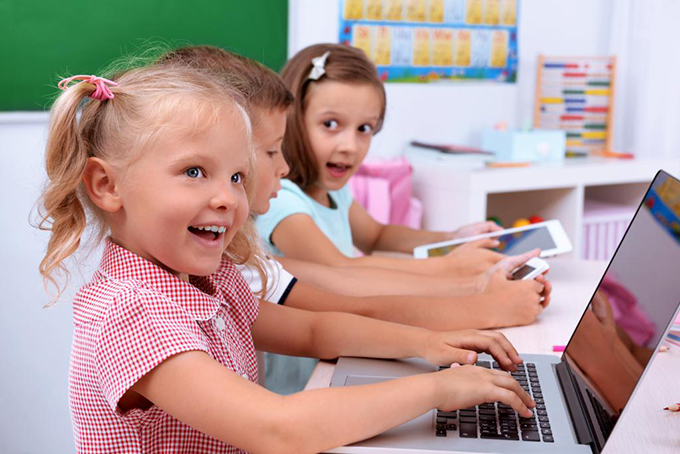
This summer the school holidays have been a bit different. We have not left the centers at the end of June as on other occasions, but we left in mid-March to continue the course online for health security.
In these months, students, families and teachers, on many occasions, we have had a very fast learning curve in digital tools, environments and services, fundamentally because necessity is the mother of all inventions. And we had a need.
Now, given the uncertainty of the return to educational centers, whether we are going to have mixed education, totally face-to-face or totally online , depending on the autonomous communities, the role of families is crucial regarding how educational technology can help achieve that students are more digitally competent and better prepared for when the 2020-2021 academic year arrives, in whatever modality arrives.
What should families keep in mind?
In this role of families, several factors must be taken into account:
- Commitment: families, more than ever, must actively commit to the learning of their sons and daughters. They must participate in and in learning communities or connecting with external agents that guide them on how to take advantage of the opportunities offered by digital technologies.
All this, in order to improve the results, as well as to enhance the talent of their sons and daughters, engaging in activities of a practical nature, exploration, research and resolution of more or less complex problems, depending, of course , of the educational level they attend.
- Informational and media literacy : families can and should help their sons and daughters to articulate needs for searching and managing information and educational resources and materials, obtained from digital environments and from reliable sources , helping them to analyze, organize, and process, retrieve and filter them in a critical, rigorous and proven way.
Especially in Primary Education it is essential that students know how to navigate safely and that what they get from the Internet is according to their age.
- Self-regulated learning : families must know the cognitive, emotional and physical development of their sons and daughters , as well as the optimal conditions for them to learn better.
They have to effectively anticipate their difficulties in the learning processes and know how to manage their time and rhythms, helping them to plan and follow personal learning itineraries and objectives . And they must do so with the mediation of digital technologies, which consolidate their autonomy as learners, sharing ideas and providing creative solutions.
- Co-responsibility, feedback, reflection and planning : families must be involved in the culture of thought and attractive and motivating evaluation of their children , providing positive feedback and promoting metacognition. They must use the potential of digital technologies for this, in order to be jointly responsible for the evaluation of their sons and daughters to improve their learning.
Also understanding the evidence that teachers provide them to make decisions regarding the needs, talents and academic challenges of their sons and daughters, as well as regarding their future.
- Design, creation and co-creation of materials and resources : families must contribute so that their sons and daughters can design, create, and co-create materials and digital resources in a wide variety of formats , since they can express themselves creatively through various digital media .
These media will use them to acquire knowledge, according to the curriculum, that helps them develop competently, autonomously, until they become digitally creative, critical and reflective people.
- Networking , exchange and collaboration : families can collaborate and communicate in a network to promote ubiquitous learning on the part of their sons and daughters, knowing what strategies, means and channels of exchange and collaboration to use according to the function they fulfill.
In addition, they must promote among their sons and daughters the use of digital environments for communication, networking, collaboration, teamwork and exchange in connected contexts, knowing, promoting and applying the appropriate rules of conduct in networks, digital media, environments and channels .
Resources for all stages
There is a wide range of sites from which to obtain materials, games and a multitude of resources with which children can improve their digital skills and where families can rely to help them:
Infant and Primary Education
- An exciting summer (Caixa Proinfancia).
- Join them to read (Combel).
- Smile and Learn .
- Code.org (to learn programming).
ESO and Baccalaureate
- STEMByMe (Program to promote STEM vocations from the age of 14).
- The free courses from Harvard University.
- Resources for online learning (Ministry of Education and Professional Training).
- Blink Learning Catalog (for Secondary).
- Virtual Expeditions (from Google).
The accompaniment of families is as important as the students’ own right to learn. Now is the time to immerse yourself fully in technology to keep up to date with what is happening in class. But many students cannot do it alone. And technology is more important than ever. Are families ready to help you?
Author Bio: Mª Jesús García San Martín is an Academic coordinator of the School of Teachers of UNIR at UNIR – International University of La Rioja
